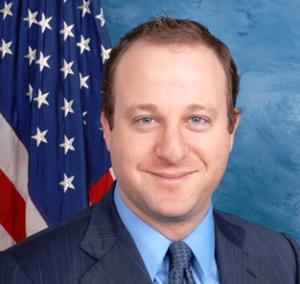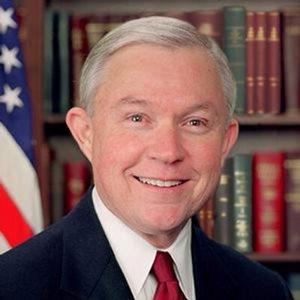This article was produced in collaboration with AlterNet and first appeared here.
While the marijuana community -- consumers, industry, and advocates alike -- eyes with trepidation the reign of avowed drug warrior Jeff Sessions at the Justice Department, the Trump executive branch isn't the only game in town when it comes to making marijuana policy. Congress is back in session, and after last November's legalization and medical marijuana victories at the polls, the pot state delegation is larger than ever.

A nascent congressional Cannabis Caucus formed in December is preparing a plethora of bills for the current session, and its members say they are optimistic about their chances, even in the time of Trump -- and Republicans holding every committee chair in both houses. It's because Congress is riding the marijuana wave, too, said caucus founder and co-chair Rep. Earl Blumenauer (D-OR).
"This Congress is going to be a little better than last Congress, and last Congress was better than the one before that," he said in an interview this week with The Cannabist. "It's very interesting watching the momentum build."
That momentum derives from public opinion polls consistently showing nationwide majorities favoring legalization and, more importantly, the actual victories at the polls in November, where legalization went four for five and medical marijuana went four for four.
"It's easier for people to embrace much of what we're doing legislatively," he said. Fixing industry-critical concerns such as the lack of operating expense deductions or access to financial services for state-legal businesses or barriers to medical marijuana research are now mere "housekeeping" issues, he added.
Nonetheless, fixes still have to get through the Congress. They haven't so far, and it's a long way between filing a bill and seeing it signed into law. Still, Blumenauer and colleagues will be pushing harder than ever.
He is joined in the Cannabis Caucus by co-chairs Reps. Jared Polis (D-CO), Dana Rohrabacher (R-CA), and Don Young (R-AL). The bipartisan grouping is notably made up of representatives from vanguard legalization states, but by no means all of them -- California alone has 53 House members -- and there is certainly room for more to come on board.
"I'm more hopeful than ever before that we can move legislation like the Regulate Marijuana Like Alcohol Act," Polis told The Cannabist, referring to last session's H.R. 1013, which picked up 19 cosponsors and was referred to a slew of subcommittees, but never even got a hearing.

H.R. 331 -- Filed by Rep. Barbara Lee (D-CA), the States' Medical Marijuana Rights Protection Act would block federal civil asset forfeiture aimed at the owners of state-legal medical marijuana operations.
H.R. 714 -- Filed by Rep. H. Morgan Griffith (R-VA), the Legitimate Use of Medicinal Marihuana Act would move marijuana to the Controlled Substance Act's Schedule II, opening the door to more research and, potentially, doctors' ability to prescribe (as opposed to recommend) marijuana for patients. It would also bar the use of that act or the Food, Drug, and Cosmetic Act to interfere with medical marijuana in states where it is legal.
H.R. 715 -- Also filed by Rep. Griffith, the Compassionate Access Act would reschedule marijuana, provide for its medical use under state laws, and remove CBD (cannabidiol) from the definition of marijuana.
H.R. 975 -- Filed by Cannabis Caucus co-chair Rep. Rohrabacher, the Respect State Marijuana Laws Act would exempt people and entities from certain provisions of the Controlled Substances Act if they are acting in compliance with state laws. Rohrabacher authored similar legislation in the last Congress, garnering 20 cosponsors, including seven Republicans.
There is no outright federal marijuana legalization bill out there yet this session, but expect to see Rep. Polis come back with his bill or perhaps Bernie Sanders reviving his bill to end federal marijuana prohibition, or both. Given political realities on the Hill, though, the Cannabis Caucus will likely save its political capital for fights it might be able to win, such as fixing the tax and banking problems facing the industry.
Another key battleground -- and one where marijuana advocates have actually won before -- is the appropriations process. The Justice Department and the DEA can't go after marijuana in legal states if Congress bars them from spending any federal funds to do so, and that's exactly what Congress did when it approved the Rohrabacher-Farr Medical Marijuana Amendment last session.
If a similar amendment were to succeed again, even if Attorney General Sessions wanted to call out the cavalry, he couldn't buy the horse feed, and it wouldn't matter how many nasty memos his deputies wrote.
And while his past pronouncements are indeed worrisome, he was quite coy at his nomination hearings, saying that he "won't commit to never enforcing federal law," but adding that enforcement priorities are "a problem of resources for the federal government."
Sessions did add later in the hearings that it's not "the attorney general's job to decide what laws to enforce," but suggested that his former colleagues could settle things once and for all.

And then there's Sessions' boss, President Trump. While he projects a law and order image and has campaigned against "drugs," the drugs he seems most concerned about are heroin and the prescription opioids -- not pot. He's also suggested in the past a willingness to let states experiment on marijuana policy, and he has a lot of other things on his plate. It's not at all clear he would let Sessions unleash a war on weed even if he wanted to.
Earl Blumenauer doesn't think Trump wants to charge into this particular melee.
"This is a struggle and will continue to be, but this is something where I honestly don't think the new administration, which has probably enough controversy on its hands, is going to knowingly pick a fight with what, almost without exception, was approved by local voters," Blumenauer said.
To ensure that Sessions doesn't strike out, "we need to make the case directly to Trump" about the economic potential of the marijuana industry, said Polis. But until federal marijuana prohibition is ended, "the industry really exists at the discretion of the president and the attorney general, and that's a dangerous place to be," he added.
Well, and Congress, too. It holds the purse strings, after all.
Marijuana policy is going to be at play in the 115th Congress. Ending federal prohibition remains the Holy Grail, but in the meantime, there are concrete actions Congress can take to protect medical and legal marijuana and the industry it's creating. Now, let's see if the Cannabis Caucus can lead the way to some victories.
Comments
Rescheduling
Anyone who is in favor of rescheduling to S2 is a complete moron ................ and/or works for the FDA and Big Pharma.
"prescribe (as opposed to recommend)"
"Prescribe" means "recommend". It's not as if a doctor can command a patient to do something. It's just advice. And since anyone's already allowed to recommend anything to anyone, you don't need a doctor or a law to allow prescribing.
What schedule 2 (as opposed to schedule 1) status does is allow a pharmacist to dispense the article to someone to whom it's been prescribed by a doctor. It has no bearing on whether a doctor is allowed to write down, "Take this." It has no bearing on whether a patient is allowed to tell a pharmacist, "My doctor told me to take this." Both those communications are already allowed.
H.R. 714
It's drafted like crap. I don't know whether that means it's not seriously expected to pass in anything like that form, or if the staff just didn't put time in on it.
You don't say "marihuana is moved from" schedule to schedule. You should indicate its removal from one and inclusion in the other by strikethru & underline. "Be issued with" and "distributing" are the wrong words; should say "cause to be dispensed for his or her use" and "dispensing". I also strongly doubt the drafter intended to supersede all provisions of the FFDCA that would "restrict" someone from "manufacturing marihuana", because that would exempt the product from labeling and purity provisions. The reference to a physician's having graduated from a medical or osteopathic college is superfluous, as is the word "medical" in "medical physician". You don't say, "This act does not," you say, "This act shall not," and even then you'd better make clear whether it applies only to its interaction with existing laws or to apply to future enactments, and it's dangerous to refer to "law regulating or prohibiting smoking" rather than to provisions of such laws, because otherwise a statute or ordinance including that and other provisions might wedge the door open to superseding this act.
The entire reference by this act to prescribing and its definition therein is problematic, because of the possibility of conflation between its technical meaning therein and its customary meaning. Although it's possible to draft this bill in a manner that would establish a technical definition for "prescription" applicable only to this bill in a way that limits its scope to what the drafter intends, it's silly to do so in such a short bill. I doubt it saves words over what needs to be written just to cover the actual issue, which is whether an article may be legally dispensed to and possessed by certain recipients. The freedom of speech of doctors is not at issue.
MJ in Congress
The Flagship legislation for the next two years is: HR975
this 30 word bill would essentially end the 1937 fed prohibition on MJ
the Gang of Four who pull the MJ wagon full time in Congress will work for its passage. We have a solid shot.
Add new comment